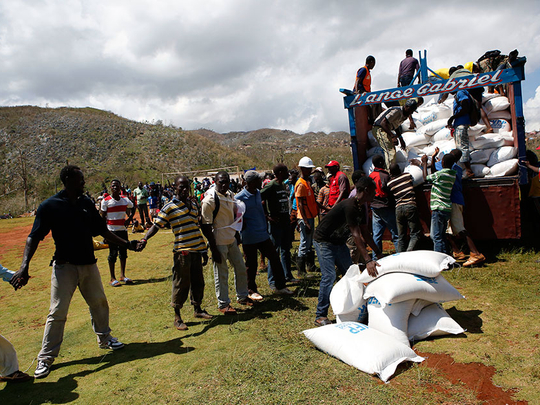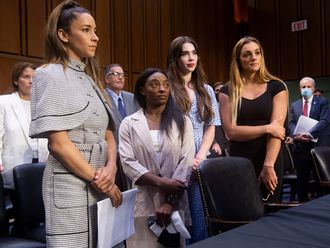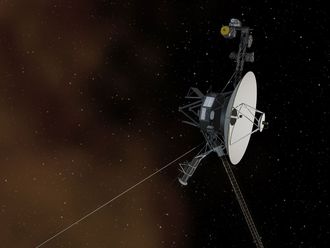
PORT-AU-PRINCE: Haiti, whose long-overdue presidential elections were further delayed when Hurricane Matthew ravaged the island nation killing hundreds and causing massive destruction, will finally vote on November 20, officials said on Friday.
Haitians had been due to head to the polls last week, but the elections, in which voters will cast ballots for both presidential and legislative candidates, were postponed due to the havoc.
According to the latest report by Haiti’s civil protection agency, at least 546 people were killed when Matthew crashed ashore on October 4 as a monster Category Four storm, packing winds of 145 miles (230 kilometres) per hour.
The impoverished Caribbean nation’s last elections, in 2015, were cancelled amid violence and massive fraud, leaving the country stranded in political limbo ever since.
The president of Haiti’s Provisional Electoral Council, Leopold Berlanger, said on Friday that a new attempt to vote would take place on November 20, with a second round planned for January 29.
Haiti has been immersed in a political crisis since the first round of presidential elections on October 25, 2015, drew opposition protests and election authorities concluded there had been mass fraud, annulling the results.
Since then, there have been multiple aborted attempts to hold the elections.
The latest cancellation comes as more than 175,500 hurricane-battered Haitians are living in temporary shelters, with at least 1.4 million people in need of emergency assistance, according to UN Secretary-General Ban Ki-moon.
Faced with widespread destruction in the southern half of the country, Haiti’s electoral council is struggling to find sites capable of hosting voting centres.
“If the council is responsible for putting on an election for the citizens, it cannot ... carry that out where there are problems,” Berlanger said.
“The election must be for all people, especially when it’s a presidential election,” he said during a press conference.
Some 30 per cent of buildings previously used as polling centres had been partially damaged or destroyed in the areas of the country that were hard-hit by the hurricane.
Many secondary roads “are still damaged, blocked by water and fallen trees, and these are the roads we need for bringing in election materials,” he said.
Presidential candidates are vying to take over from Haiti’s last leader, Michel Martelly, who left office in February without a replacement.
Parliament in the meantime elected interim president Jocelerme Privert, although his 120-day mandate technically expired in June.
Privert surveyed the damage in southern Haiti after the hurricane and declared three days of national mourning.
Many of the citizens in the south have not only lost their homes and agricultural livelihoods, but also their national identification cards which are essential for voting.
Haiti’s interior ministry has opened two telephone lines to help facilitate new cards for those whose were lost, between now and the end of October.
Amid the ongoing political turmoil, Haitians were already grappling with chronic poverty and a number of major public health issues.
The Americas’ poorest nation — home to 11 million people — has been struggling to recover from a devastating 2010 earthquake that has left thousands still living in tents.
Cholera has killed more than 10,000 people and affected some 700,000 since an outbreak in 2010, with 500 new cases reported every week.












